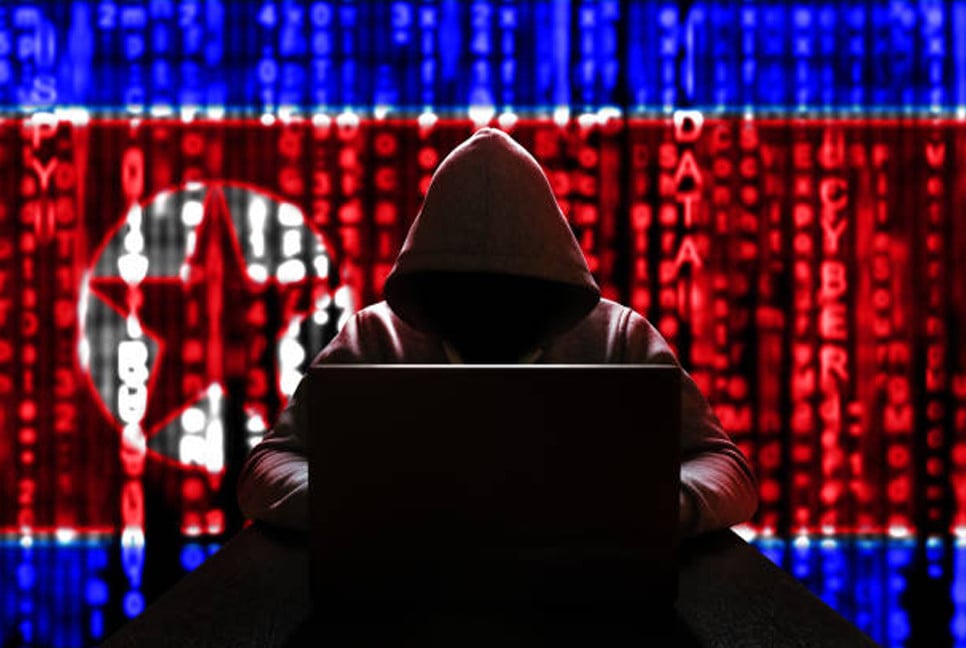Security researchers have revealed a new dimension to North Korea’s cyber operations, involving imposters posing as venture capitalists, recruiters, and remote IT workers to steal cryptocurrency and corporate secrets. These efforts, they warn, have generated billions of dollars in stolen funds, helping the regime dodge international sanctions and fund its nuclear weapons program.
At Cyberwarcon, an annual cybersecurity conference in Washington, D.C., experts detailed the methods North Korean hackers use to infiltrate multinational corporations. James Elliott, a Microsoft security researcher, highlighted how North Korean IT workers have infiltrated "hundreds" of organizations globally, using false identities and U.S.-based intermediaries to bypass financial sanctions.
“North Korean IT workers are a triple threat,” Microsoft noted, referring to their ability to deceptively secure jobs, earn money for the regime, steal intellectual property, and extort their employers.
The researchers described a range of tactics employed by various North Korean hacking groups. One group, dubbed "Ruby Sleet" by Microsoft, targeted aerospace and defense companies to steal secrets for advancing weapons and navigation systems. Another group, "Sapphire Sleet," focused on cryptocurrency theft by impersonating recruiters and venture capitalists.
In fake venture capitalist schemes, the hackers lured victims into virtual meetings designed to fail, then pressured them to download malware disguised as troubleshooting tools. In fake recruitment efforts, victims were asked to complete a skills assessment, which also contained malware. This malware enabled hackers to access cryptocurrency wallets and other sensitive data. Microsoft reported that at least $10 million in cryptocurrency was stolen in just six months.
The most persistent threat comes from North Korean hackers taking advantage of the post-pandemic remote work boom. By securing remote jobs under false pretenses, they earn salaries that support the regime and gain access to sensitive company data.
Security firm KnowBe4 admitted earlier this year that it had unknowingly hired a North Korean operative. Once discovered, the company blocked the worker's access and confirmed no data was compromised. However, most victims remain silent, highlighting the challenges in addressing this growing threat.
North Korea’s cyber operations, described as a complex network of hacking groups with varying techniques but unified goals, face little international retaliation due to the country’s heavily sanctioned status. These activities underline the regime’s reliance on cybercrime to finance its ambitions while avoiding traditional economic constraints.
North Korean IT worker schemes have become increasingly sophisticated, with operatives creating online accounts such as LinkedIn profiles and GitHub pages to establish credibility, according to security researchers. Using AI technologies like face-swapping and voice-changing software, these workers craft elaborate false identities to secure remote jobs and further the regime’s agenda.
Once hired, companies unknowingly ship laptops to U.S.-based addresses managed by facilitators. These facilitators set up farms of company-issued devices, installing remote access software that allows North Korean operatives to log in from abroad, effectively masking their true locations. Microsoft noted that many of these operatives work not only from North Korea but also from allied nations like Russia and China, further complicating efforts to detect them.
Microsoft researcher James Elliott revealed the discovery of an inadvertently public repository linked to a North Korean IT worker, providing critical insights into the operation. The repository included dossiers, resumes, and spreadsheets detailing false identities and the profits generated by these campaigns. Elliott described the repository as containing the hackers' "entire playbooks," enabling a clearer understanding of their tactics.
To bolster the credibility of their fake personas, North Korean IT workers immediately verify their LinkedIn accounts as soon as they receive a company email address. However, researchers highlighted instances of sloppiness that exposed their true nature.
Hoi Myong and a researcher known as SttyK shared their methods for identifying suspected North Korean IT workers during a Cyberwarcon talk. In one case, they contacted an IT worker claiming to be Japanese but found linguistic errors in their communications, such as using phrases that don’t exist in the Japanese language. Other red flags included discrepancies in claimed locations and bank account details, such as having a Chinese account but an IP address tracing to Russia.
The U.S. government has imposed sanctions on North Korean-linked organizations involved in these schemes. The FBI has also warned about the use of AI-generated deepfake imagery to secure tech jobs. In 2024, prosecutors charged individuals involved in operating laptop farms used to bypass sanctions.
Despite these efforts, researchers emphasized that companies must improve their employee vetting processes. "They’re not going away," Elliott warned. "They’re gonna be here for a long time."
(Source: TechCrunch)
BD-Pratidin English/Mazdud





















































